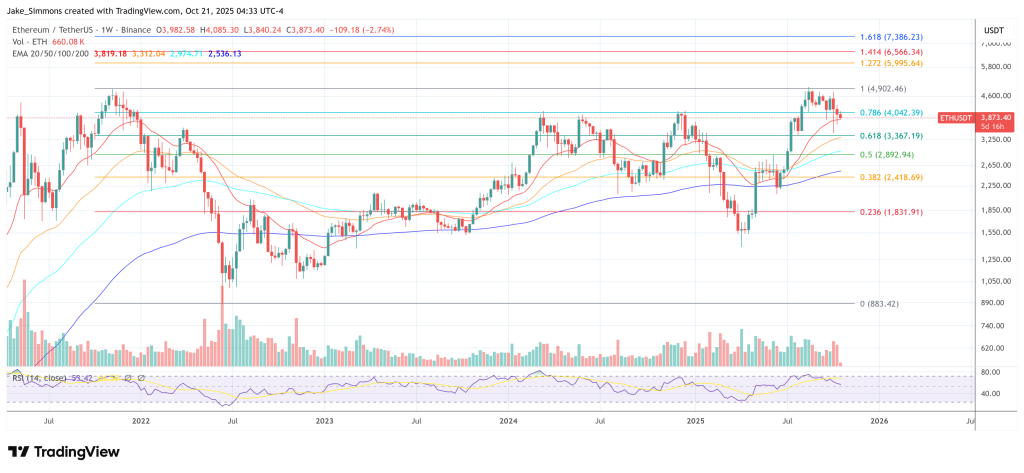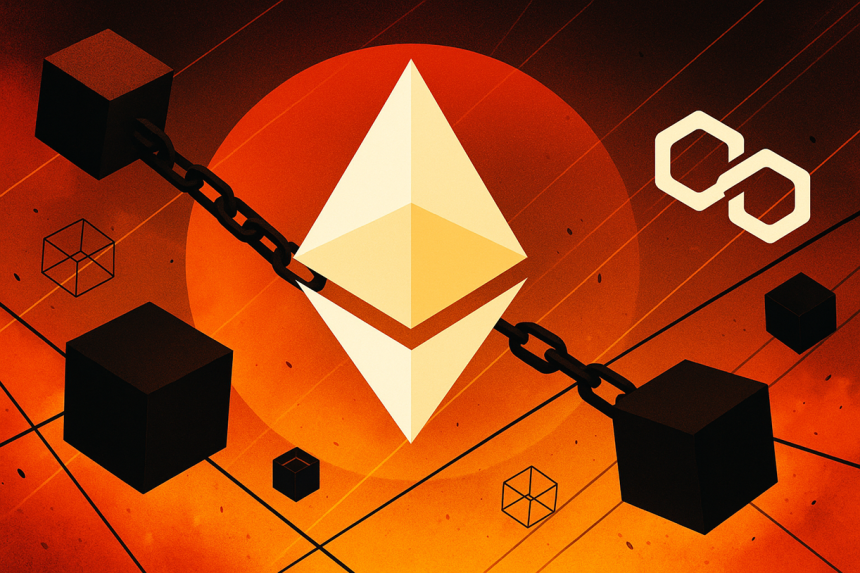Polygon Basis CEO Sandeep Nailwal has publicly questioned his “loyalty to Ethereum,” a uncommon and unflattering show of self-deprecation throughout the ecosystem that drew a right away response from key contributors, traders, and in the end Vitalik Buterin himself. The hunt was sparked. The trade, which has unfolded on
Is the Ethereum Basis a ‘shit present’?
“After studying this submit from Peter, I noticed it was time for me to talk out, too,” Nailwal wrote, referring to core developer Péter Szilágyi’s choice on October 19 to publish a letter he had despatched to EF administration about 18 months in the past. Nailwal, who counts Ethereum and Buterin as his entry level and inspiration, stated his long-standing ethical loyalty to Ethereum has come at a private and company price: “Though I/we’ve by no means obtained direct assist from EF or the Ethereum CT group, actually the alternative is true. Nevertheless, I imagine in Polygon’s valuation, “I’ve at all times felt an ethical loyalty to Ethereum, though it most likely prices billions of {dollars}.”
Nailwal’s criticism is cultural and monetary. “The Ethereum group as a complete has been a bullshit present for fairly a while,” he wrote, including that repeated public crises have left key contributors “questioning what they’re doing right here.” He urged his buddies, together with AkshayBD (Chief Advertising Officer of the Solana Basis and co-founder of SuperteamDAO), to declare Polygon L1 and “get out of this circus,” regardless of the group’s “socialist conduct” regardless of its contributions “due to some arbitrary ‘technical definition.’ Claimed to be trolling Polygon.
He argued that the market construction punishes Polygon for rejecting the L1 label. “It’s broadly believed that if Polygon had determined to name itself L1, it might most likely be price two to 5 instances greater than it’s now,” he stated, pointing to a now broadly mentioned comparability. “If you consider it, the worth of Hedera Hashgraph an L1 is larger than Polygon, Arbitrum, Optimism, and Scroll mixed.”
In accordance with Nailwal, classification disputes have real-world implications for recognition and index inclusion. He argued that “Polygon PoS successfully depends on Ethereum, whereas Katana, XLayer, and dozens of different chains within the Polygon ecosystem are true L2.” Nevertheless, “the Ethereum group ensures that Polygon won’t ever be thought of L2 and won’t be included within the market-recognized Ethereum Beta.” He added {that a} “outstanding Polygon stakeholder” scolded “you may’t get Polygon from GrowthPie, which refuses to checklist the Polygon chain,” and attributed Polymarket’s success to “Ethereum,” though “Polygon itself shouldn’t be Ethereum.”
Regardless of the frustration, Nailwal stated he would as soon as once more attempt to renegotiate technical and social agreements on growth. “I will make a ultimate push to revive the entire L2 story. Please bear with me for a couple of extra weeks.” He stated, “Ethereum is a democracy. In any democratic system, everybody ultimately will get dissatisfied. However in the long term, it is nonetheless the one system that actually works.”
The thread drew quick response from outstanding builders. Andre Cronje, who stated he spent “over 700 ETH on deployment and ETH infrastructure” throughout his Ethereum days, explicitly questioned EF’s assist priorities. “I attempted contacting EF, however no response, no BD assist, no grants, no assist, no retweets,” Cronje wrote. Evaluating his expertise to Fantom’s Sonic ecosystem, he stated he was “confused” to see the crew there receiving BD assist, grants, TVLs, audits and advertising and marketing, and requested: “If not the core builders Peter & geth, and the loudest L2 supporters (Sandeep and Polygon), then the place does it go?”
Tommy Shaughnessy of Delphi Ventures defined this downside as an absence of compensation for irreplaceable expertise. “The Ethereum Basis ought to pay builders like skilled athletes. (…) The Ethereum Basis is principally paying folks to stroll away. One of the best builders ought to be paid like skilled athletes.”
Vitalik Buterin reacts
Buterin personally thanked Nailwal and Polygon for his or her contributions a couple of hours later, whereas additionally offering technical route. “We sincerely respect @sandeepnailwal’s private contributions and @0xPolygon’s extremely precious position within the Ethereum ecosystem,” he wrote, including that he was grateful for Polygon’s Polymarket internet hosting position, and its preliminary and resource-intensive guess on the ZK-EVM proof (“Jordi Baylina crew participation”), infrastructure for proof aggregation through AggLayer, “an software that requires a excessive degree of scalability.”
In response to Polygon’s key technical query of whether or not safety ensures can and ought to be strengthened by fashionable zero-knowledge proofs, Buterin argued that the market has developed towards a separation of issues between L2 operators and ZK proof specialists.
“It is rather troublesome to be each the perfect L2 and the perfect ZK crew. They’re very completely different talent units,” he wrote, citing standalone ZK suppliers, urging Polygon to “take any off-the-shelf ZK expertise, which is now considerably higher, and apply it to the PoS chain to get full section 1 and subsequent section 2 ensures on Ethereum L1.”
He emphasised how far the economic system has moved. “It has been confirmed that the price is round $0.0001/tx.” And lots of the L2 crew stated, “I’m very stunned once I let you know the newest numbers… the newest ZK-EVM and stay tasks like @Lighter_xyz debunk the concept that ZK shouldn’t be viable at hyperscale.”
At press time, ETH was buying and selling at $3,873.

Featured picture created with DALL.E, chart from TradingView.com


